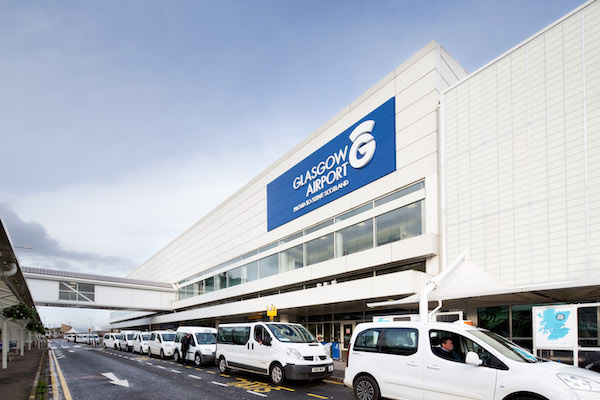The potential sale of AGS Airports, which manages Aberdeen, Glasgow, and Southampton airports, has garnered significant interest from major international players in the aviation sector.
Reports highlight that Manchester Airports Group (MAG) and leading international operators are considering bids, potentially reshaping the UK’s airport ownership landscape.
Potential Buyers in the Aviation Market
Reports indicate that several major players in the aviation industry have expressed interest in acquiring AGS Airports. Manchester Airports Group (MAG) and Aena, the Spanish owner of Luton Airport, are among the frontrunners. Additionally, Aeroports de Paris is reportedly involved in the bidding process. This reveals significant international interest in expanding airport portfolios in the UK market.
Financial Valuation and Implications
AGS Airports, the parent company managing Aberdeen, Glasgow, and Southampton airports, is valued at £1.3 billion based on the latest financial data for the year ending December 2022. This valuation makes it an attractive asset for infrastructure investors looking to expand their airport holdings. With multiple international entities competing, the eventual sale could reshape the UK airport landscape significantly.
Financial analysts suggest that the sale of AGS Airports could attract a competitive bidding war, considering the company’s high valuation and strategic importance. Investors, especially those focused on infrastructure, see immense value in securing stakes in airports that serve key UK cities.
Strategic Interest and Rationale
Given the strategic locations of the airports, potential buyers are keen on capturing a share of the lucrative UK travel market. Aberdeen, Glasgow, and Southampton airports are crucial hubs, facilitating both domestic and international travel. Acquiring these airports would offer strategic advantages in terms of expanding operational reach and enhancing service capabilities.
MAG, for example, may aim to consolidate its position as a leading airport operator by adding these airports to its portfolio. Similarly, Aena’s interest aligns with its strategic plan for international growth, where expanding operations in the UK is a significant goal.
An Aena spokesperson stated: ‘As the largest airport operator in the world, Aena always analyses all available opportunities with rigour.’ This comment underscores the strategic intent behind their interest in AGS Airports.
Competitors in the Race
While MAG and Aena are prominent contenders, another significant player in the mix is a consortium of mainly Australian pension funds. This group, known for their investments in infrastructure, adds a competitive layer to the acquisition process. The involvement of such diverse bidders highlights the global interest in UK aviation assets.
The background of these pension funds in managing long-term infrastructure projects could be a compelling factor in their favour. Their approach typically involves sustainable investment strategies, which might appeal to regulatory bodies overseeing the sale.
Recent Developments and Context
Recently, Gatwick and Belfast International owner Vinci Airports finalised acquiring a majority stake in Edinburgh airport alongside Global Infrastructure Partners. This move exemplifies the dynamic changes occurring within the UK’s airport ownership landscape. If AGS Airports is acquired by a similar international entity, it could further shift the competitive dynamics.
The acquisition of Edinburgh airport by Vinci Airports reflects how international firms view UK airports as pivotal in expanding their global footprint. Such transactions are not only about acquiring assets but also about entering partnerships that enhance operational expertise and market presence.
The ongoing interest in AGS Airports is a testament to the broader trend of consolidation in the aviation industry, where companies seek to optimise resources and leverage synergies across various markets.
Market Responses and Predictions
Industry experts predict a range of outcomes depending on the successful bidder. Should MAG acquire the airports, it could lead to an integrated operational model across multiple UK sites, potentially enhancing efficiency and connectivity. Conversely, if Aena or the Australian consortium secures the deal, the focus might be more on leveraging international networks.
The market response to the potential sale has been one of cautious optimism. Stakeholders are keenly observing how this transaction could influence airport management practices and the overall competitiveness of UK aviation.
Conclusion
AGS Airports is poised at a critical juncture as numerous suitors vie for its ownership. The outcome of this sale will not only define the future strategic direction of the airports involved but also reshape the competitive landscape of the UK aviation sector.
As the bidding war for AGS Airports unfolds, the transaction’s outcome will likely have profound implications for the aviation industry, particularly in the UK market.
The acquisition prospects underline the strategic importance of UK’s airports in global aviation expansion efforts.

